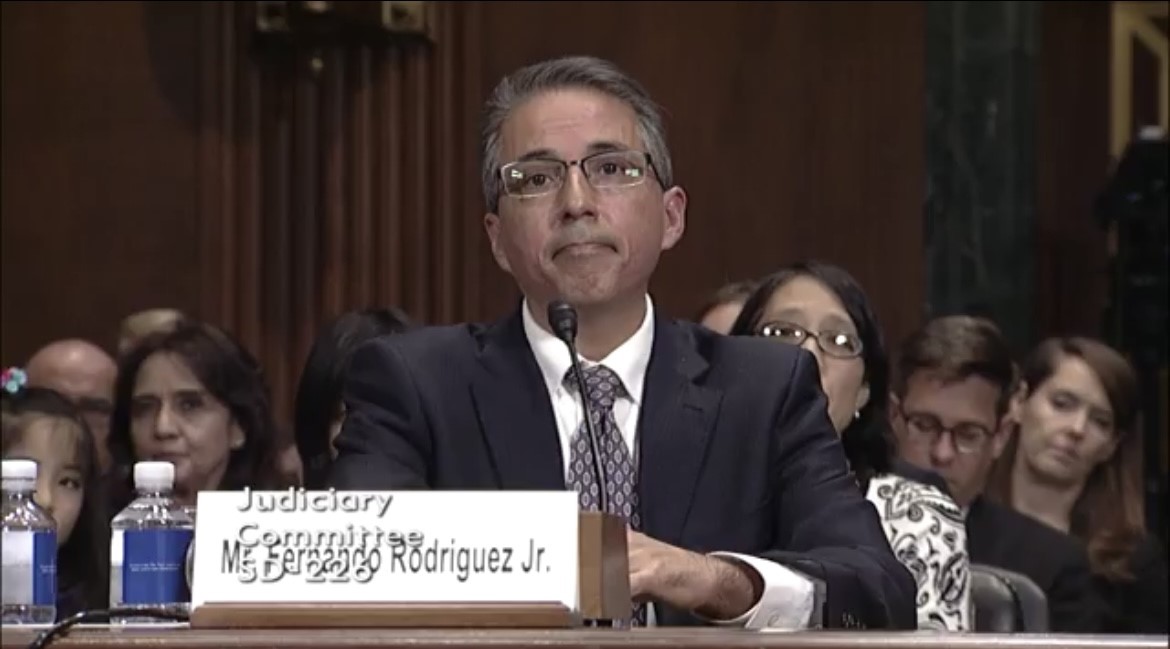- 14 3402-5578
- Rua Hygino Muzy Filho, 737, MARÍLIA - SP
- contato@latinoobservatory.org
 U.S. Senate Judiciary Committee
U.S. Senate Judiciary Committee
A U.S. federal judge has definitively blocked the Trump administration's use of the Foreign Enemies Act — an 18th-century legal device — to deport Venezuelans accused of criminal activity in South Texas. The ruling, handed down by Judge Fernando Rodriguez Jr., represents a severe setback to the White House's strategy of employing rarely used legislation originally created for wartime as a tool of its contemporary immigration policy.
Rodriguez, who was appointed to the position by Trump himself, maintained in his sentence that the government improperly expanded the scope of the law, whose purpose was restricted to individuals belonging to enemy nations in scenarios of declared war or military invasion. The decision reinforces the Supreme Court's understanding that any Venezuelan immigrant on this charge must be guaranteed the right to challenge deportation in court.
Although restricted to the Southern District of Texas — covering cities such as Houston and Brownsville — the decision could influence other lawsuits pending in federal courts in different states, where the government's measure is also challenged. The judge pointed out that the central terms of the law, such as "invasion" and "predatory incursion," refer to actions by organized military forces, and not to alleged activities of criminal gangs, such as the Venezuelan "Tren de Aragua," which Trump tried to frame as a legal justification.
According to The New York Times, the judicial opinion also dismissed the Justice Department's argument that the judiciary would not have jurisdiction to evaluate the president's use of the law. Rodriguez acknowledged that the act gives broad powers to the head of the Executive, but said that it is up to the courts to verify that the use of the rule is in compliance with its legal limits. However, the judge clarified that he could not challenge the veracity of Trump's allegations about the gang's alleged connection with the government of Venezuela, as it is a political prerogative.
The decision was celebrated by civil rights advocates, including the American Civil Liberties Union (ACLU), which is leading several lawsuits against the use of the law in other states.
Despite the victory in the courts, the ACLU still faces the challenge of repatriating nearly 140 Venezuelans already deported to El Salvador under the law, and who remain detained in a maximum-security prison in the country. A court order has been filed in Washington to compel the U.S. government to bring these immigrants back and guarantee them due process.
While the Justice Department opposes that request,
Judge Rodriguez's decision imposes new limits on the reach of Trump's
immigration policies and signals that, even with expanded powers in matters of
national security, the executive branch is not immune from legal control when
it exceeds the parameters set by Congress.











